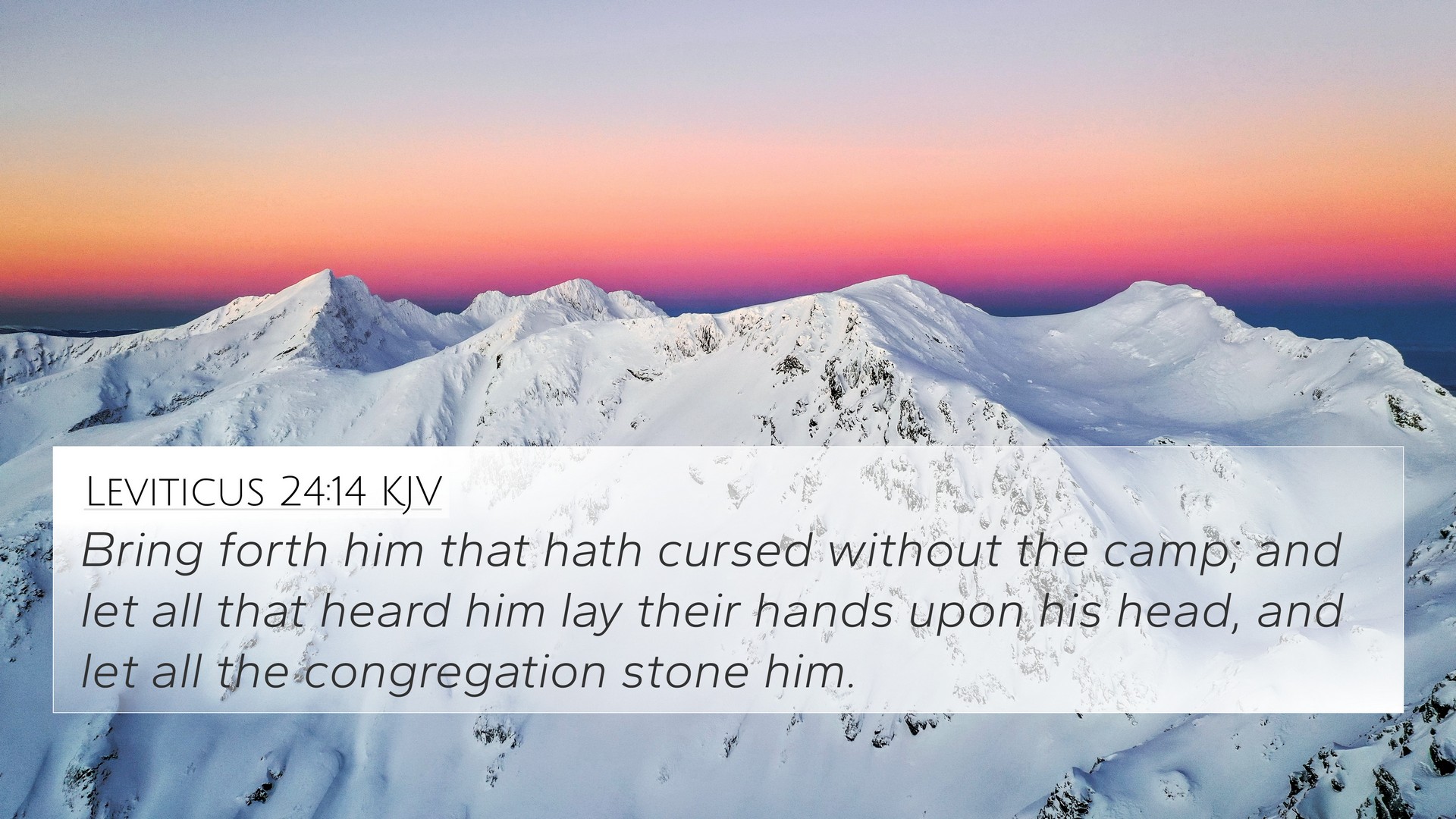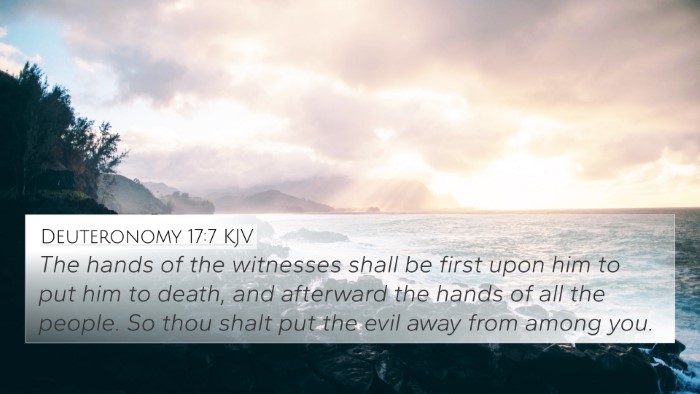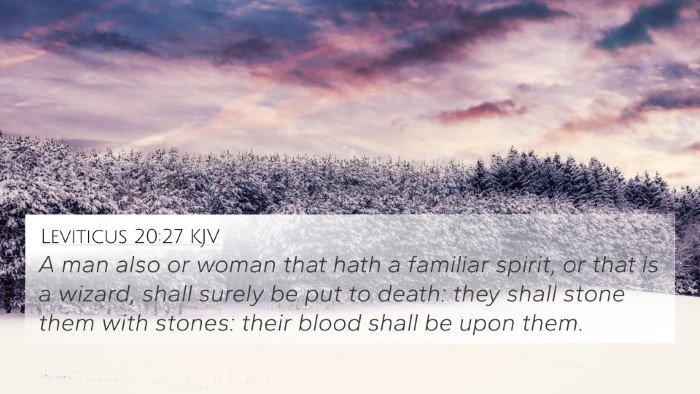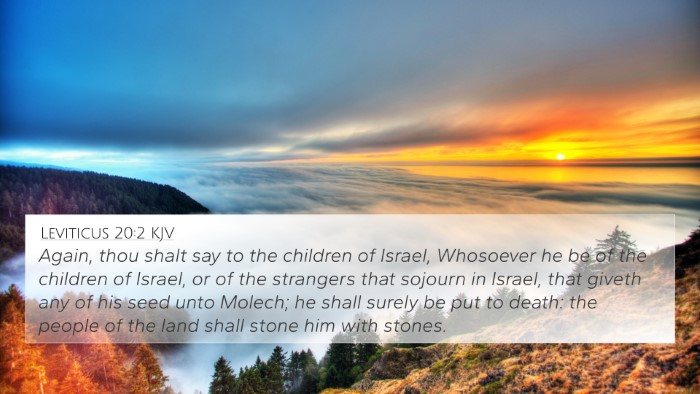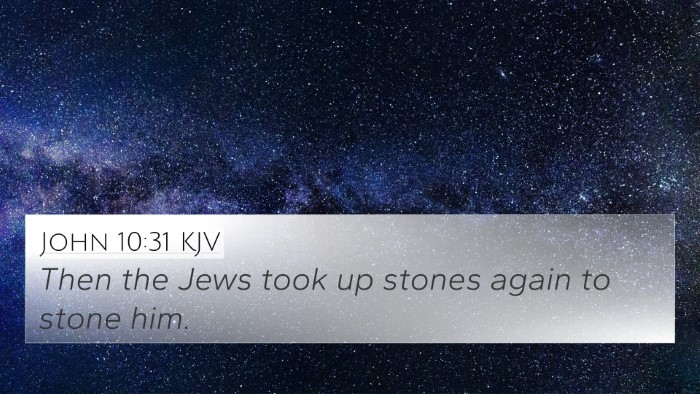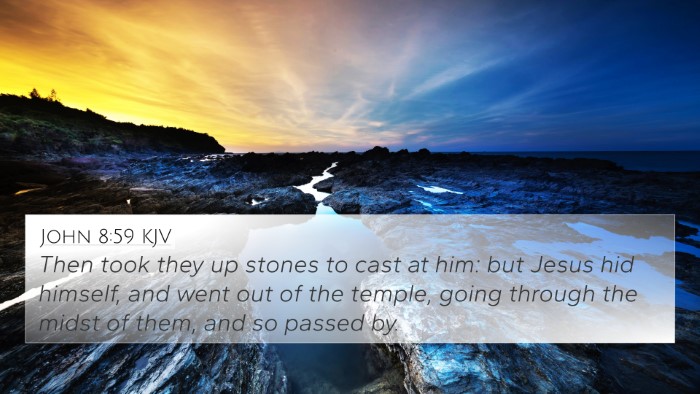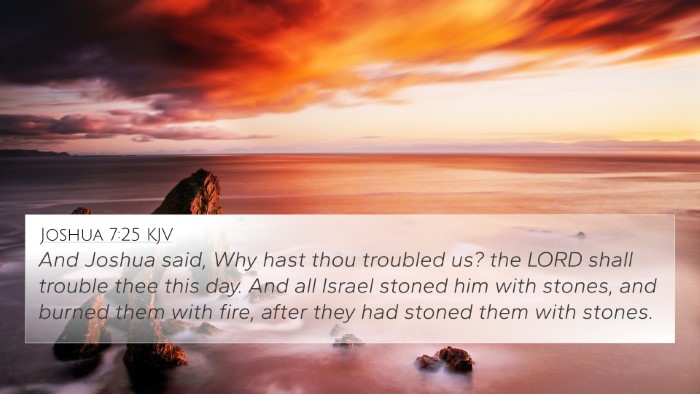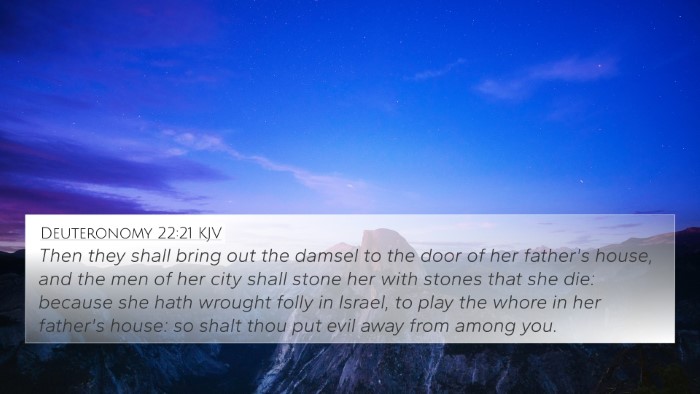Understanding Leviticus 24:14
Leviticus 24:14 states: “Bring forth him that hath cursed without the camp; and let all that heard him lay their hands upon his head, and let all the congregation stone him.” This verse addresses the severe consequences for blasphemy, emphasizing the importance of reverence towards God's name.
Meaning and Context
This passage falls within the holiness code of Leviticus, which outlines rituals and behaviors essential for maintaining Israel's covenant relationship with God. The broader context (Leviticus 24:10-23) discusses a case of blasphemy that required a serious penalty—death by stoning—demonstrating the gravity of taking God's name in vain.
Commentary Insights
-
Matthew Henry:
Henry notes the corporate responsibility in executing judgment. The community's involvement signifies that blasphemy is not just a personal offense; it is a breach of the communal covenant with God.
-
Albert Barnes:
Barnes explains that this penalty reflects the seriousness with which Israel was to treat the sanctity of God's name. This underscores the historical context where maintaining divine honor was crucial to preserving societal order.
-
Adam Clarke:
Clarke stresses that the necessity of collective action in stoning the blasphemer illustrates that sin—especially that which disrespects God—affects the entire community. Thus, it requires communal condemnation.
Thematic Connections
This verse relates closely to several themes in both the Old and New Testaments, particularly the sanctity of God's name, community responsibility in maintaining holiness, and the severity of sin.
Cross References
- Exodus 20:7: “Thou shalt not take the name of the LORD thy God in vain.” - This verse reinforces the command to honor God’s name.
- Leviticus 18:21: “And thou shalt not let any of thy seed pass through the fire to Molech.” - Highlights the seriousness of worship practices.
- Numbers 15:35-36: The stoning of a Sabbath-breaker illustrates the communal responsibility in enforcing God's laws.
- Matthew 5:22: Jesus expands on the consequences of anger and insults, showing the continuity of rabbinic interpretations on the sacredness of the divine name.
- Acts 7:58: The stoning of Stephen reflects the serious condemnation for speaking against God, paralleling the treatment of blasphemers.
- Romans 1:21-23: Paul discusses the consequences of failing to honor God, drawing parallels to the dishonor of His name.
- Hebrews 10:28-29: Those who disregard God’s law face severe punishment akin to the blasphemer described in Leviticus.
Applications for Study
This verse and its interpretations offer rich material for anyone studying Scripture and seeking to understand the principles of justice and holiness within the Biblical text.
Tools for Cross-Referencing
Utilizing tools such as Bible concordances or cross-reference guides can enhance your study of Leviticus 24:14, helping you identify connections between various Biblical texts.
Conclusion
Leviticus 24:14 serves as a reminder of the weighty consequences of blasphemy and emphasizes the importance of community in upholding God’s standards. Understanding this verse in relation to others contributes to a fuller awareness of Biblical justice and divine holiness.
